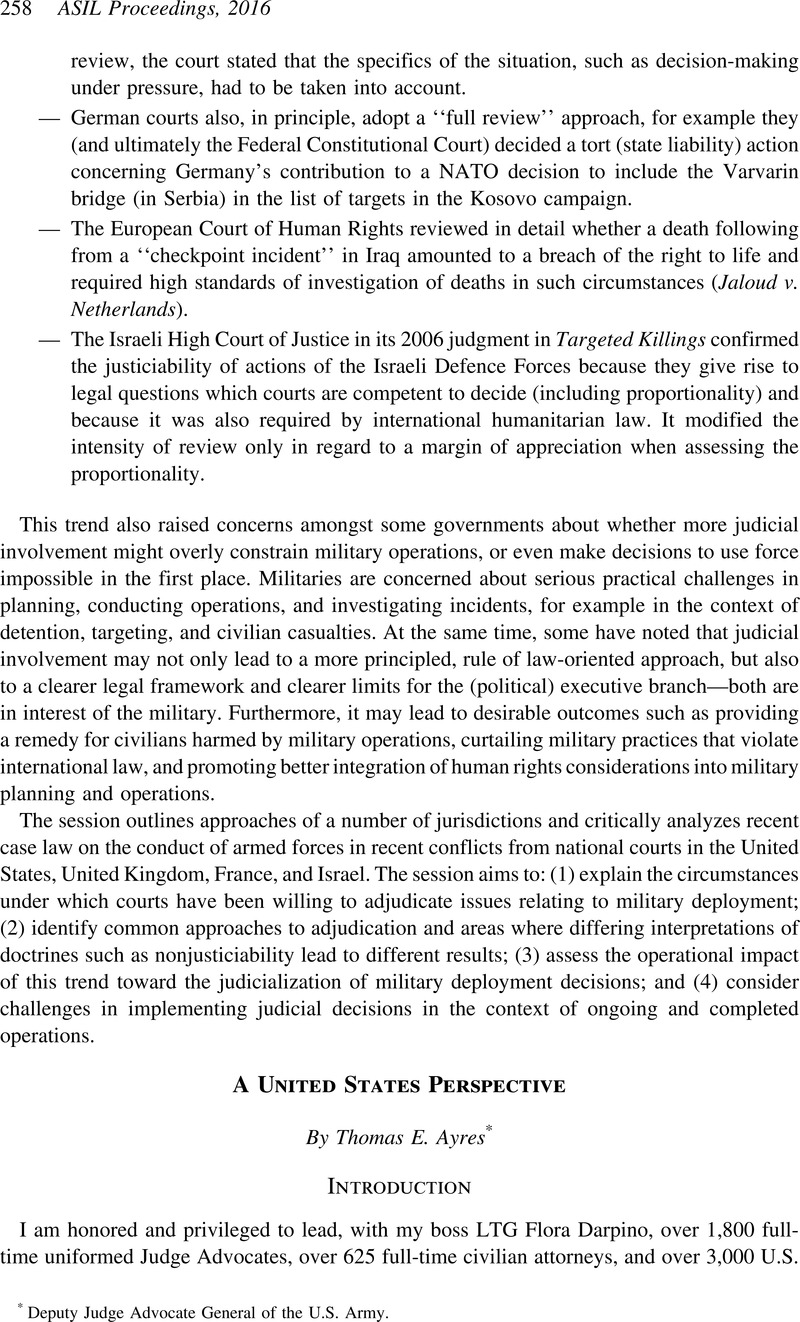No CrossRef data available.
Article contents
A United States Perspective
Published online by Cambridge University Press: 18 May 2017
Abstract

- Type
- Comparative Perspectives on the Judicialization of Foreign Affairs: Adjudication of Military Deployments in National Courts
- Information
- Copyright
- Copyright © American Society of International Law 2016
References
1 Perhaps a comparative analysis with the Israeli Supreme Court would be in order here: Pub. Comm. Against Torture. v. Gov't of Israel (Targeted Killings). In particular, in that case, the court articulated its own version of the political question doctrine: “On the one end of the spectrum stands the question … regarding the content of international law [which is reviewable]… . On the other end … is the decision, made on the basis of the knowledge of the military profession, to perform a preventative act which cases the death of terrorists [which is not reviewable].” An analysis of U.S. case law on this issue reveals much more deference is provided to the military. U.S. courts will not even review the legality of the matter if the political question doctrine is implicated.
2 Al Goodman, 3 U.S. Soldiers Indicted in Death of Spanish Journalist, CNN (Oct. 5, 2011), at http://www.cnn.com/2011/10/05/world/europe/spain-us-troops/index.html.


